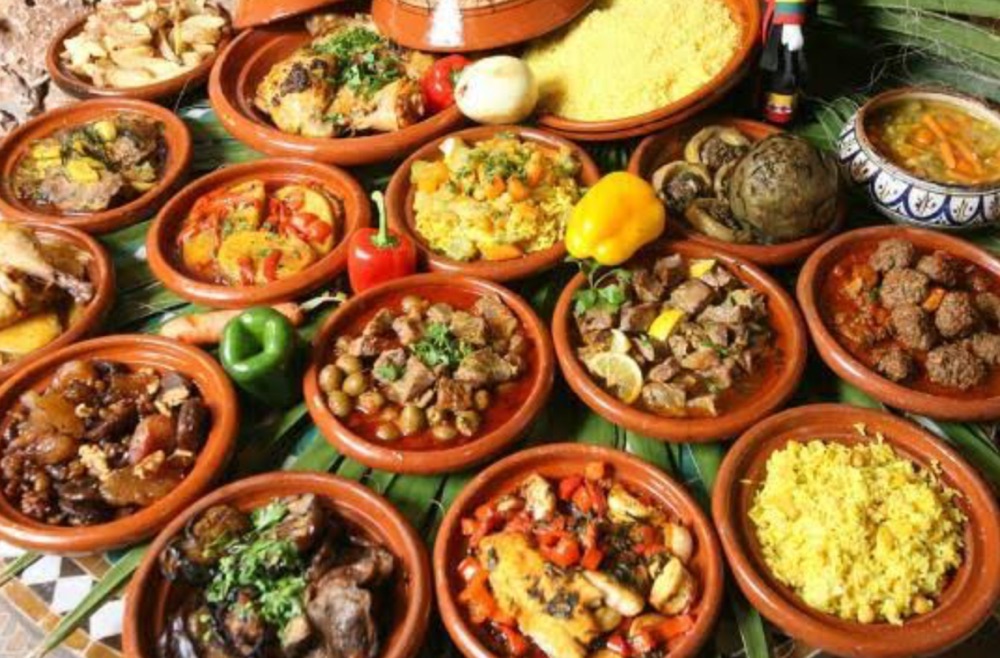
Taste Authentic Fassi Cuisine: A Journey Through Fes’ Culinary Heritage
Fes is not only Morocco’s spiritual and cultural capital—it’s also a haven for food lovers, offering some of the country’s most sophisticated and time-honoured dishes. Fassi cuisine is renowned for its delicate balance of sweet and savoury flavours, intricate spice blends, and techniques passed down through generations. From elegant royal dishes to comforting street food, every meal tells a story of tradition, craftsmanship, and Moroccan hospitality.
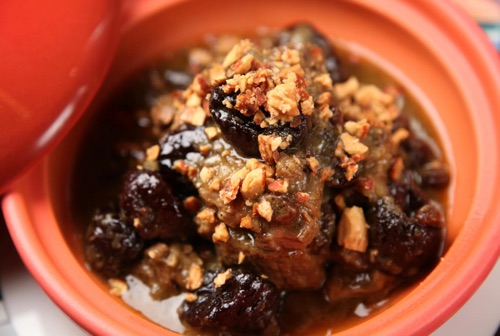
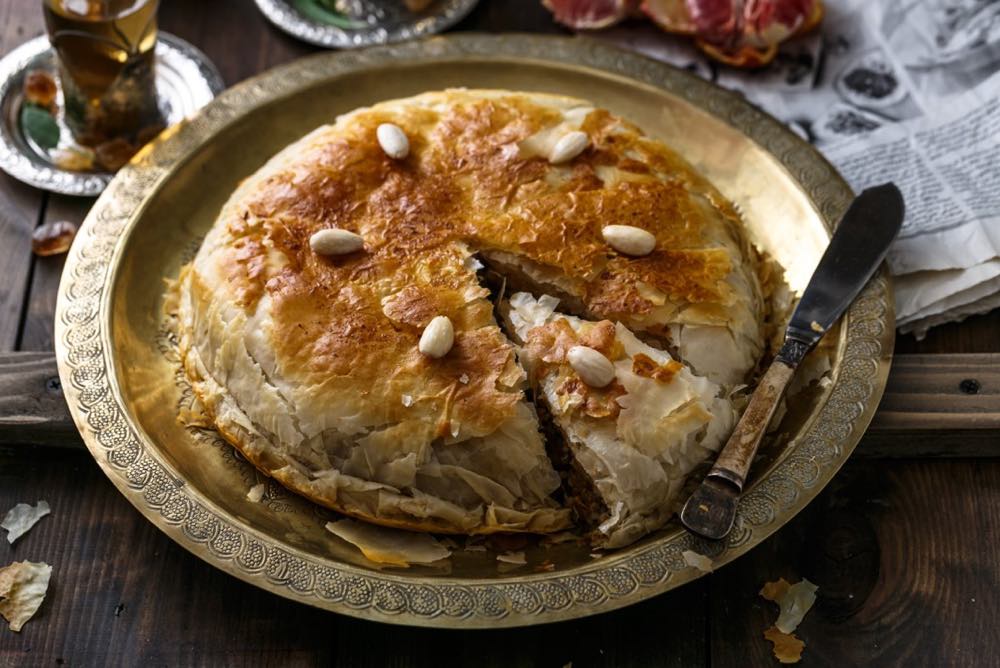
Mrouzia, Moroccan traditional food
Pastilla, Moroccan traditional food
Must-Try Fassi Specialties
Pastilla: A rich, flaky pastry filled with spiced meat (often pigeon or chicken), almonds, and cinnamon, wrapped in delicate layers of warqa dough.
Tanjia Fassi: A slow-cooked, clay-pot dish unique to Fes, prepared with succulent lamb, preserved lemons, and bold spices.
Harira: A hearty Moroccan soup made with tomatoes, lentils, chickpeas, and aromatic spices, often enjoyed to break the fast during Ramadan.
Makouda: Crispy, golden-fried potato patties, a beloved street food snack best paired with harissa sauce.
Chebakia: A flower-shaped Moroccan pastry made from spiced sesame dough, deep-fried until golden, then coated in honey infused with orange blossom water and sprinkled with sesame seeds
Kefta Tagine: Spiced minced meatballs simmered in a rich tomato sauce, often topped with eggs.
Seffa Medfouna: A sweet and savoury couscous dish, garnished with almonds, cinnamon, and powdered sugar—a true Fassi delicacy.
Mrouzia: A flavourful lamb tagine slow-cooked with raisins, almonds, and a unique blend of Moroccan spices.
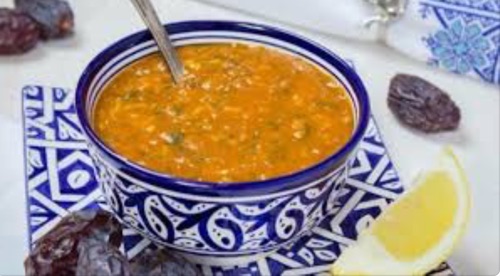
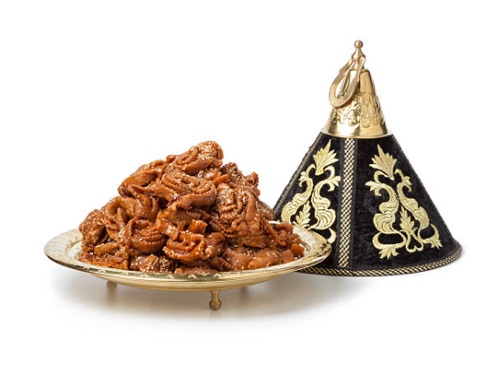
Harira, Moroccan traditional food
Chebakia, Moroccan traditional food
Dining Like Royalty: Moroccan Table Décor
One of the most enchanting aspects of Fassi dining is the beautifully decorated tables, embroidered in traditional Fes style. These intricately designed tablecloths, often adorned with fine Moroccan patterns and gold-thread accents, create an ambiance reminiscent of a palace feast. Sitting at a Fassi table, surrounded by stunning craftsmanship and aromatic dishes, transforms every meal into a luxurious cultural experience.

Moroccan traditional food
Where to Savour Fassi Cuisine
Traditional Riads: Many riads offer home-cooked Moroccan feasts, often made with generations-old recipes.
Local Markets: Head to food stalls in the Medina for authentic street eats like grilled meats, pastries, and sweets.
Famous Restaurants: Sample refined Moroccan cuisine in elegant settings that celebrate Fes’ culinary excellence.
Cooking Classes: Learn the secrets of Moroccan spices and techniques with a hands-on cooking experience led by local chefs.
Tips for Visitors
Best Time to Dine: Lunch and dinner are prime times for indulging in elaborate Moroccan feasts.
Etiquette: Moroccan meals are traditionally eaten by hand or with bread—embrace the local custom!
Tea Culture: Finish your meal with a cup of refreshing Moroccan mint tea, a staple of hospitality in Fes.
Spices & Souvenirs: Take home ras el hanout, saffron, and preserved lemons to recreate Fassi flavours in your own kitchen.


